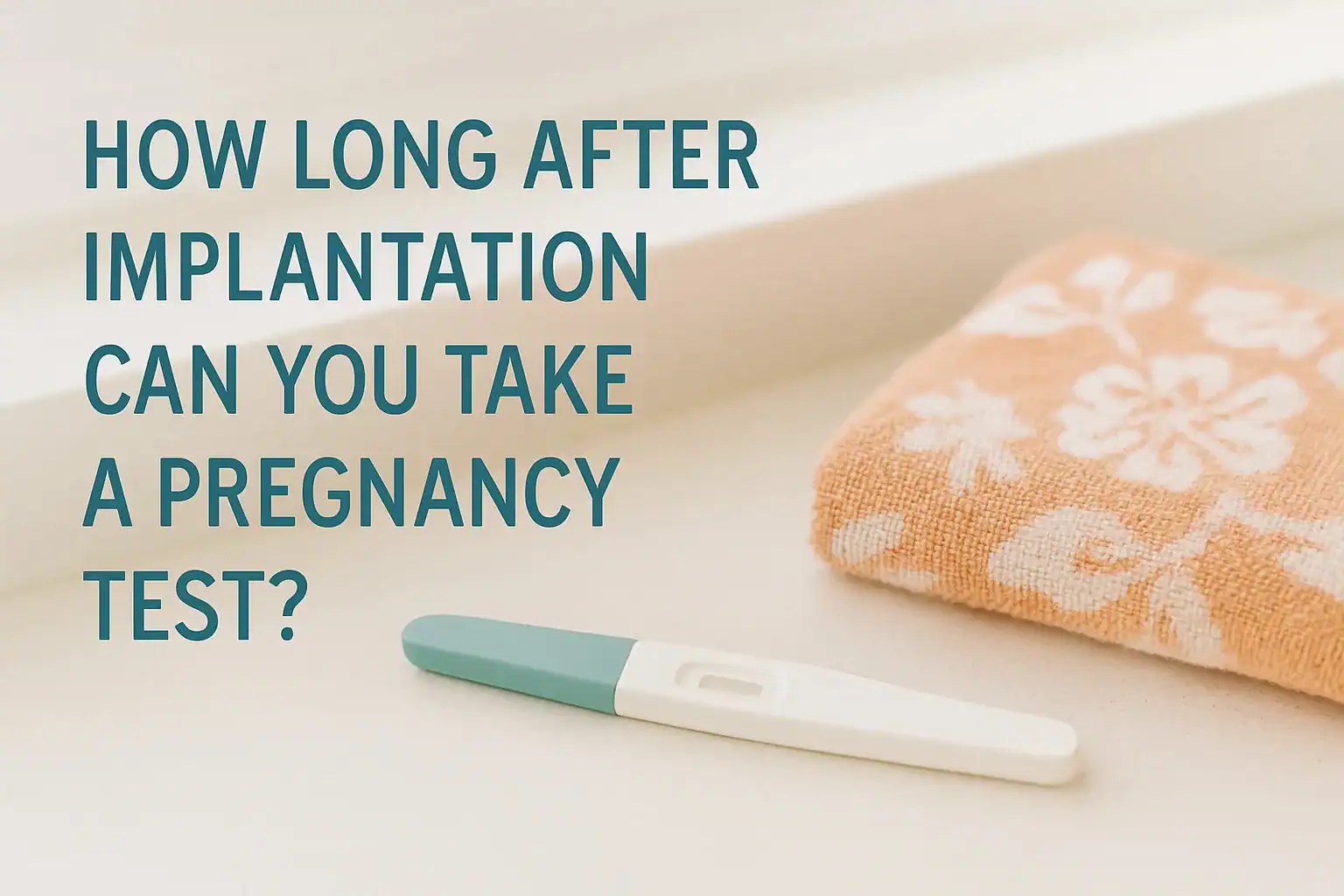How Long After Implantation Can You Take a Pregnancy Test?
Quick Answer
You can take a pregnancy test 2–3 days after implantation bleeding ends, but 5–7 days gives the most reliable result. That gives your body time to build up enough hCG for a positive test.
When you’ve been trying to conceive, every hour of waiting can feel like forever. And when spotting shows up, the question usually comes fast: Can I test yet?
In this post, we’ll walk through the earliest signs, what’s happening in your body, and how to avoid testing too soon — so you can move forward with a little more clarity and confidence.
If you’re not sure whether what you experienced was actually implantation bleeding, this implantation bleeding overview can help you sort that out first.
How Soon Does hCG Rise After Implantation?
Once implantation occurs, your body starts producing human chorionic gonadotropin (hCG), the hormone that pregnancy tests detect. But it doesn’t show up right away.
For some, it takes time for hCG to rise high enough to show on a test. For others, it may rise sooner. According to Cleveland Clinic, hCG levels begin rising after implantation, but may take a few days to reach detectable levels.
When Is the Earliest You Can Test?
If you’re trying to test as soon as possible, here’s a general guide:
- Earliest: 2–3 days after implantation bleeding ends (this is when hCG may start being detectable for some)
- Most accurate: 5–7 days after implantation
- Best timing: When your period is due or the day after
Some early-detection pregnancy tests claim they can give results as soon as 6 days before your missed period. While that’s technically true for a small percentage of people, the majority will still get more accurate results by waiting a few more days.
Need a little support while you wait – or after you know?
Whether you’re still hoping or just found out, these collections offer gentle care for wherever you are today.
Signs You May Be Ready to Test
While every body is different, here are some signs that may suggest your hormone levels are rising:
- Implantation spotting has stopped
- Your period hasn’t started when expected
- You’re noticing symptoms like breast tenderness, fatigue, or nausea
- If you’ve been tracking your temperature, your BBT (basal body temperature) has stayed elevated
One symptom alone isn’t a sure sign, but if you’re noticing a few together, it might be time to reach for the test (or at least buy one and put it somewhere visible for emotional backup).
Can You Get a False Negative If You Test Too Soon?
Yes, absolutely.
If you test before hCG has had a chance to build up, you could get a false negative, which can be incredibly disheartening when you’re already in an emotionally sensitive place.
If your test is negative but your period still doesn’t arrive within a day or two, try testing again in 48 hours. hCG levels typically double every 48–72 hours in early pregnancy.
Was It Implantation Bleeding or Something Else?
If you’re second-guessing whether it was implantation at all, you’re not alone. Spotting during the luteal phase (the second half of your cycle) can mean a lot of different things.
It might be:
- A small drop in estrogen mid-cycle
- Your period just starting early
- Breakthrough bleeding
- Or yes… implantation
If you’re trying to figure out was it implantation or your period, this side-by-side comparison can help break it down.
If the color has you second-guessing, this breakdown of implantation spotting shades can help you understand what’s typical — and when it might be something more.
Final Tip: Trust the Process (Even When It’s Hard)
Waiting to test can feel like you’re holding your breath for days, sometimes weeks. And we know how heavy that can be.
Whatever the outcome, you’re not doing anything wrong. Your body is doing its best. And if you need support or space to breathe, you have every right to take it.
TL;DR Summary
You can take a pregnancy test 2–3 days after implantation bleeding ends, but 5–7 days is more accurate. Testing too early can lead to false negatives, so if you’re unsure, wait until your expected period and test again 48 hours later if needed.
